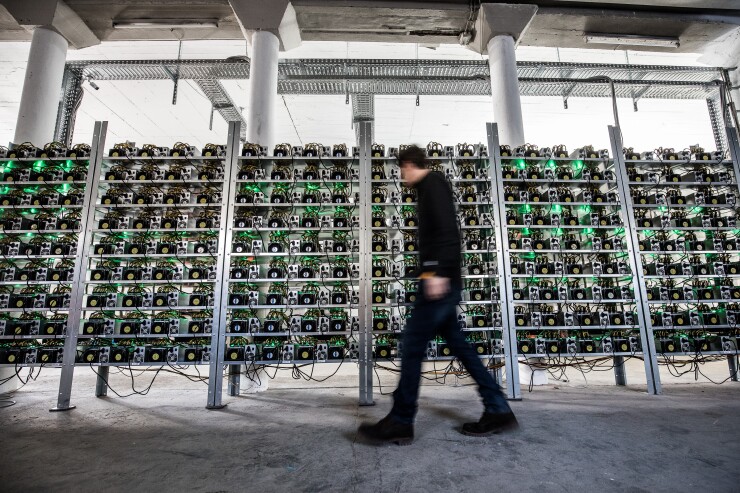FORT LAUDERDALE, Florida — If a client asked for an explanation about what blockchain is, what would your answer be?
Planners at the T3 Advisor Conference were posed that challenge in presentations that sought to explain the importance of distributed ledger technology and its future impact on the financial industry.
For those who are stumped (quick answer: blockchain is a digital shared ledger that tracks online transactions) there’s plenty of time to learn how it works, says Magdalena Ramada, senior economist at Willis Towers Watson.
While no advisor needs to become a blockchain expert, it’s not to be ignored either, Ramada adds. “You need to know what it is, and how it will affect the financial services environment.”

Financial institutions, particularly banks and custodians, are examining blockchain technology for ways in which it can be used. Schwab, for instance, has a group exploring blockchain applications.
As a result, the more immediate impact of blockchain will be on the firms that develop technology tools for advisors, Ramada adds.
“At some point they will need to adapt their business models,” she says, noting Vanguard’s recent
There are several benefits for advisors once blockchain technology becomes more prevalent in financial services, says Zohar Swaine, head of New York-based consultancy Mink Hollow Advisors. For example, proxy voting will become more transparent, as well as private placements, he says.
“Blockchain enables instant transactions and eliminates the middleman,” Swaine says, noting that some professions in the financial industry were endangered as a result of the technology.
Though the process of digital transactions is very much a technical subject, Swaine says that is little excuse for an advisor not to know what blockchain is and how it works.
“You need to be conversant in it, just as you are conversant about compound interest,” he says. “It will become a question that clients will ask about.”
Some advisor attendees gamely took the blockchain challenge.
“Maybe I don’t have a detailed explanation, but I know some of its implications,” says Josiah Choy, with Frisch Financial Group in New York. “It’s an immutable shared ledger. There’s a lot of potential to be seen with this technology.”
Bob Rall, founder of Rall Capital Management in Cocoa, Florida, says he is learning about the technology. It’s worth noting, he adds, that only a few years ago there was just as much mystery about cloud computing or best-of-breed technology.
“[Blockchain] is not a big deal for the type of client I have,” Rall says. “Maybe they might know something about bitcoin, but they wouldn’t know about blockchain.”
Brad Johnston, founder and president of The Johnston Group in Minneapolis, recalls first hearing about blockchain technology through friends that had invested early into bitcoin. “I know guys that bought bitcoin in the low hundreds,” he says.
What is more confusing to him, he says, is the volatile value of blockchain. At the start of last year, a single bitcoin was valued at $1,000, before skyrocketing in a short span to its all-time $19,783.21 high in December. The digital asset has since plummeted, falling below $6,000.
“I don’t understand how one branded form of blockchain would warrant such a sharp price increase,” Johnston says, acknowledging the future importance that distributed ledger technology will have.
Did Johnston want to take a crack at defining blockchain?
“Essentially it is creating tokens and individual peer-to-peer transactions without an intermediary,” he says. “And there cannot be any changes to the values of these transactions because the community network is constantly ensuring and verifying the truth of any one transaction.”





